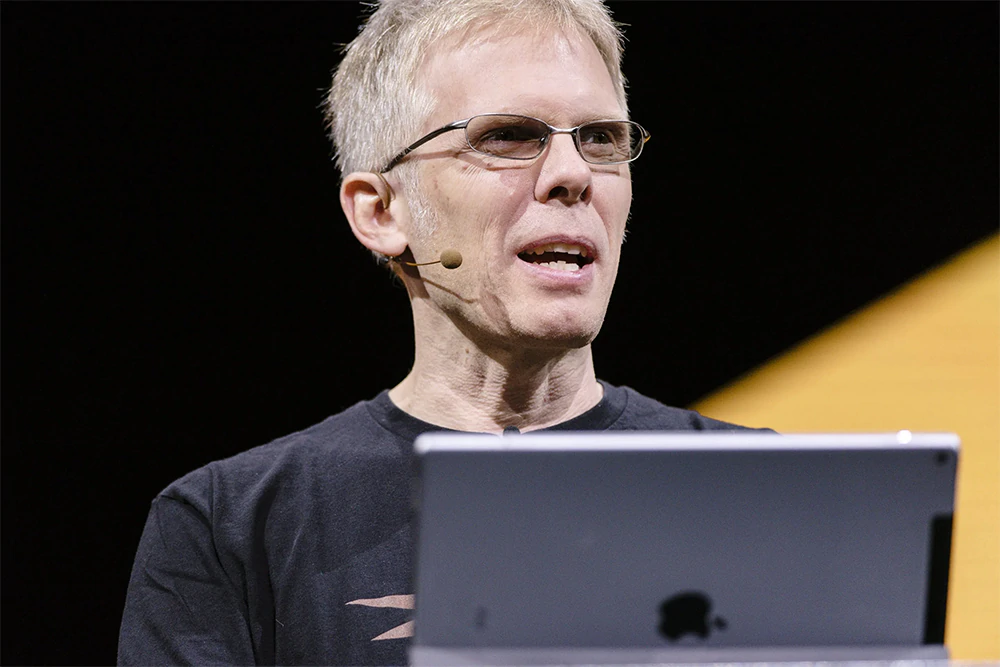When the digital world has given the term "metaverse" a huge boost in popularity, thanks to Facebook that renamed itself to Meta, the hype of virtual reality escalated to an unforeseen height.
The tech world couldn't be happier, as many other companies followed suit, and also embraced the trend Meta helped re-popularized.
And here, John Carmack, the game designer behind titles like Commander Keen, Doom, Quake, Rage, and their many shooter games, is a VR enthusiast.
And he was also excited.
But after a decade working for Meta, under its Oculus subsidiary, Carmack could no longer help himself.
As one of the prominent champions in the industry, Carmack had enough, and bid farewell. The thing is, his message to his colleagues was leaked in part to the media.

In an update, he decided to post the whole thing, and to also add some clarifications, to his Facebook Page.
He said that he "resigned from my position as an executive consultant for VR with Meta," and shared an internal post he previously sent to his colleague.
I have mixed feelings.
Quest 2 is almost exactly what I wanted to see from the beginning – mobile hardware, inside out tracking, optional PC streaming, 4k (ish) screen, cost effective. Despite all the complaints I have about our software, millions of people are still getting value out of it. We have a good product. It is successful, and successful products make the world a better place. It all could have happened a bit faster and been going better if different decisions had been made, but we built something pretty close to The Right Thing.
The issue is our efficiency.
Some will ask why I care how the progress is happening, as long as it is happening?
If I am trying to sway others, I would say that an org that has only known inefficiency is ill prepared for the inevitable competition and/or belt tightening, but really, it is the more personal pain of seeing a 5% GPU utilization number in production. I am offended by it.
[edit: I was being overly poetic here, as several people have missed the intention. As a systems optimization person, I care deeply about efficiency. When you work hard at optimization for most of your life, seeing something that is grossly inefficient hurts your soul. I was likening observing our organization's performance to seeing a tragically low number on a profiling tool.]
We have a ridiculous amount of people and resources, but we constantly self-sabotage and squander effort. There is no way to sugar coat this; I think our organization is operating at half the effectiveness that would make me happy. Some may scoff and contend we are doing just fine, but others will laugh and say “Half? Ha! I’m at quarter efficiency!”
It has been a struggle for me. I have a voice at the highest levels here, so it feels like I should be able to move things, but I’m evidently not persuasive enough. A good fraction of the things I complain about eventually turn my way after a year or two passes and evidence piles up, but I have never been able to kill stupid things before they cause damage, or set a direction and have a team actually stick to it. I think my influence at the margins has been positive, but it has never been a prime mover.
This was admittedly self-inflicted – I could have moved to Menlo Park after the Oculus acquisition and tried to wage battles with generations of leadership, but I was busy programming, and I assumed I would hate it, be bad at it, and probably lose anyway.
Enough complaining. I wearied of the fight and have my own startup to run, but the fight is still winnable! VR can bring value to most of the people in the world, and no company is better positioned to do it than Meta. Maybe it actually is possible to get there by just plowing ahead with current practices, but there is plenty of room for improvement.
Make better decisions and fill your products with “Give a Damn”!
John Carmack's job was to help guide Meta, the company with Mark Zuckerberg at its helm, in creating better Oculus VR hardware.
But Carmack was disappointed by his employer, because he saw that Meta experiences a crippling inefficiency, and that he was "offended" by how such a big company with "a ridiculous amount of people and resources" but "constantly self-sabotage and squander effort."
Despite Carmack had a high-ranking "consulting CTO/executive advisor" title, Carmack complained that he was "evidently not persuasive enough" to change Meta's VR efforts for the better.
Previously, Carmack talked about his internal efforts to push for the development of a "super cheap, super lightweight" Meta VR headset that could come in at "$250 and 250 grams."
Instead, Meta created the heavily overdesigned and expensive $1,500 Quest Pro.
"We're not building that [cheap, light] headset today, but I keep trying," Carmack said at the time.
Back in August 2022, Carmack said that Meta lost about $1 billion per month on its VR effort, and that makes him "sick to [his] stomach."
Carmack is a true believer of VR, believing that Oculus had the world-changing potential of virtual reality. But it seems that he was wrong.